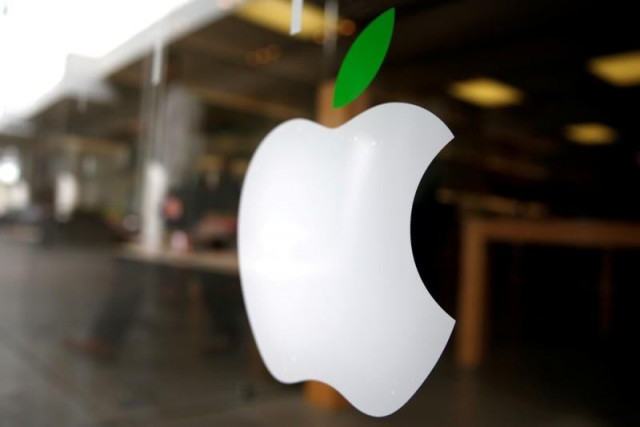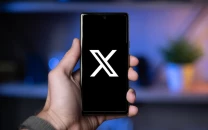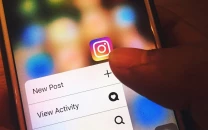US court allows consumer lawsuit on Apple marketplace monopoly
Opening a new avenue of antitrust litigation against the iPhone maker

The logo of Apple (AAPL) is seen in Los Angeles, California, United States. PHOTO: REUTERS
In a 5-4 ruling, the justices rejected Apple's argument that consumers lacked standing to proceed with their lawsuit because the tech giant was merely an intermediary with app developers.
The class-action lawsuit from 2011 maintains that Apple, which takes a 30 per cent commission on app sales, abuses its monopoly position, resulting in higher prices.
The opinion written by the newest court member, Justice Brett Kavanaugh, said consumers had a right to pursue their case because they have a direct relationship with Apple.
Apple to launch three iPhones with new camera features this year
"If a retailer has engaged in unlawful monopolistic conduct that has caused consumers to pay higher than competitive prices, it does not matter how the retailer structured its relationship with an upstream manufacturer or supplier," the opinion said.
Kavanaugh was joined by liberal justices Ruth Ginsburg, Elena Kagan, Stephen Breyer and Sonia Sotomayor.
A dissenting opinion written by Justice Neil Gorsuch and joined by other conservatives on the court agreed with Apple's argument that developers, not the company, sell to consumers and that the lawsuit is based on "pass-on" liability.
"The problem is that the 30 per cent commission falls initially on the developers," Gorsuch wrote.
"So if the commission is, in fact, a monopolistic overcharge, the developers are the parties who are directly injured by it. Plaintiffs can be injured only if the developers are able and choose to pass on the overcharge to them in the form of higher app prices that the developers alone control."
The ruling comes amid a growing backlash against major tech companies that dominate key segments of the online economy. Democratic presidential candidate, Elizabeth Warren, has argued that big firms such as Facebook, Google and Apple should be broken up through antitrust enforcement.
And Apple faces charges in Europe of abusing its platform by discriminating against rival apps, including one complaint from streaming music service Spotify.
John Lopatka, a professor of antitrust law at Penn State University, said the latest ruling does not address the merits of the lawsuit, which must go back to a lower court for trial but, adds to the pressure on companies like Apple.
"If you're a platform monopolist, you're a sitting duck. You're a target for antitrust challenges," Lopatka said.
Apple could sidestep the controversy, according to Lopatka, by allowing apps to be purchased through certified outside parties.
"Once you allow iPhone users to get apps elsewhere, the case disappears," he said.
Some activists meanwhile hailed the decision as a victory in the battle against tech monopolies.
"This is an important win in the public's fight against monopoly in the tech sector and elsewhere," said Sandeep Vaheesan of the Open Markets Institute, a think tank focused on antitrust issues.
But Morgan Reed, president of ACT |The App Association, which represents 5000 app makers and developers, said the ruling could open litigation floodgates.
"We are extremely disappointed in the decision from the US Supreme Court to reward trial lawyers rather than developers," Reed said.
"Platforms of all kinds have provided three key benefits for developers trust, reduction of overhead, and global access to consumers."
Apple issues fix for FaceTime eavesdropping bug
Ed Black of the Computer & Communications Industry Association, a trade group, said the ruling opens up digital platforms to liability for their role as "matchmaker companies" than connect consumers with services.
"The decision may unintentionally expose businesses offering digital platform services to unintended liability," Black said in a statement.
The App Store is the sole avenue for apps for its iPhone and other mobile devices, and Apple has paid out more than $100 billion to developers since launching the store a decade ago.
Amid falling iPhone sales, Apple is focusing more on its App Store sales and its own services such as Apple Music and Apple Pay. The company did not immediately respond to an AFP query on the court decision.



















COMMENTS
Comments are moderated and generally will be posted if they are on-topic and not abusive.
For more information, please see our Comments FAQ